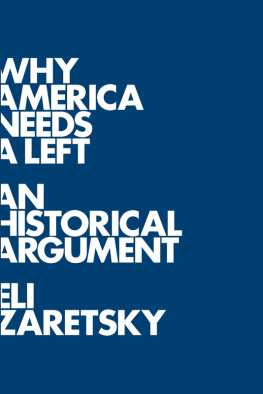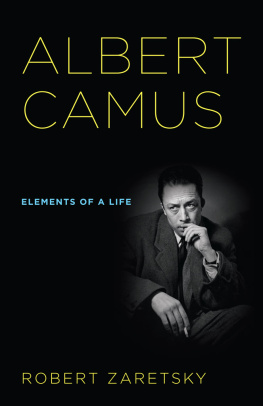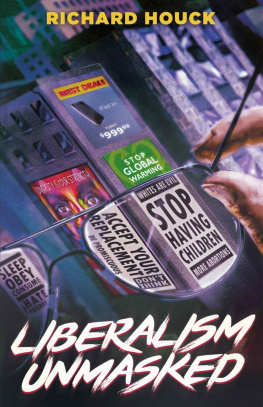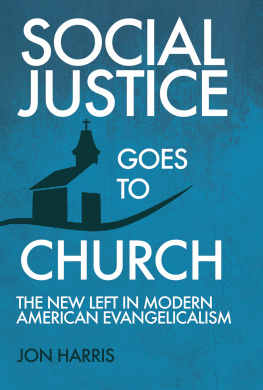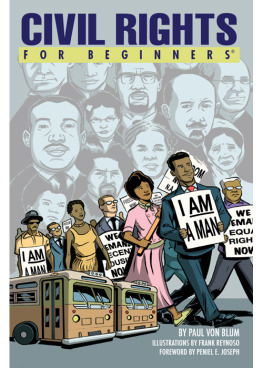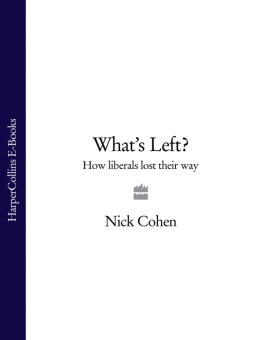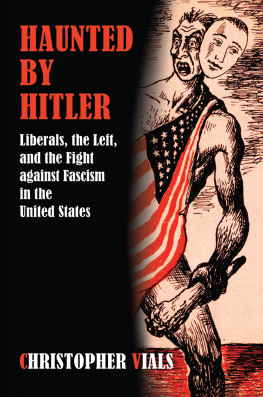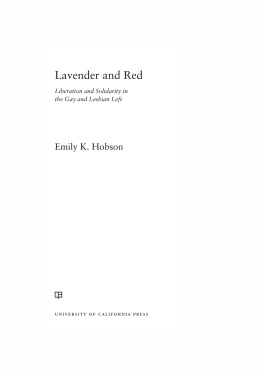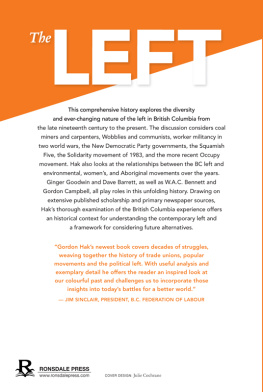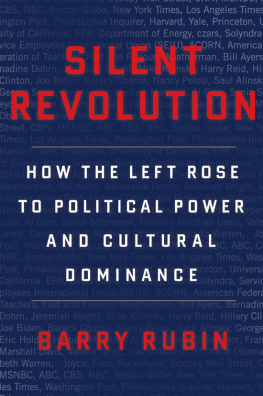Why America Needs a Left
In memory of Allen Zaretsky
A sweet giving nature, easy laughter and emotional depth
Why America Needs a Left
A His torical Ar gument
Eli Zaretsky
polity
Copyright Eli Zaretsky 2012
The right of Eli Zaretsky to be identified as Author of this Work has been asserted in accordance with the UK Copyright, Designs and Patents Act 1988.
First published in 2012 by Polity Press
Polity Press
65 Bridge Street
Cambridge CB2 1UR, UK
Polity Press
350 Main Street
Malden, MA 02148, USA
All rights reserved. Except for the quotation of short passages for the purpose of criticism and review, no part of this publication may be reproduced, stored in a retrieval system, or transmitted, in any form or by any means, electronic, mechanical, photocopying, recording or otherwise, without the prior permission of the publisher.
ISBN-13: 978-0-7456-5656-4
A catalogue record for this book is available from the British Library.
Typeset in 11 on 13 pt Sabon
by Servis Filmsetting Ltd, Stockport, Cheshire
Printed and bound in Great Britain by MPG Books Group Limited, Bodmin, Cornwall
The publisher has used its best endeavors to ensure that the URLs for external websites referred to in this book are correct and active at the time of going to press. However, the publisher has no responsibility for the websites and can make no guarantee that a site will remain live or that the content is or will remain appropriate.
Every effort has been made to trace all copyright holders, but if any have been inadvertently overlooked the publisher will be pleased to include any necessary credits in any subsequent reprint or edition.
For further information on Polity, visit our website: www.politybooks.com
Acknowledgments
This project began with me puzzling over the problem of the left in general. I benefited from invitations from Hendrik Geyer of the Stellenbosch Institute of Advanced Study in South Africa, Christian Ingrao of LInstitut dHistoire du Temps Prsent in Paris, and Ross Harrison, Provost at Kings College, Cambridge, which allowed me to present preliminary ideas, and supplied me with research facilities. I also gratefully acknowledge The New School for Social Research and Lang College, which provided me with a sabbatical and other research support. After a while I realized that I needed to separate off the problem of the American left from the more general problem with which I began. Alice Kessler-Harris invited me to prepare a version of my ideas for the Organization of American Historians, which allowed me to do just that. John Thompson was convinced that I could make his book deadline for that version, and he helped me to do that. Two other friends, Leonard Helfgott and Jeremy Varon, gave me superb, last-minute readings. Michael Kazin sent me the proofs of his American Dreamers: How the Left Changed a Nation long before I completed my book. Nancy Fraser, as always, was luminous and inspiring; whatever lucidity the book possesses comes from her. My obligations to so many great historians can be traced in my notes. Finally, I want to acknowledge an older debt to James Weinstein, who first introduced me to the problem of the left.
Men fight and lose the battle, and the thing that they fought for comes about in spite of their defeat, and when it comes, turns out not to be what they meant, and other men have to fight for what they meant under another name.
William Morris, A Dream of John Ball, 1886
Introduction
Americas Three Great Crises and Three Lefts
From the beginning of the republic, most of Americas thinkers and political leaders have argued that the country neither had nor needs a significant left. The so-called liberal consensus school, including Louis Hartz and Richard Hofstadter, has argued that the country has always enjoyed agreement on such matters as private property, individualism, popular sovereignty, and natural rights. Others claimed that it did not have the leftist working class or peasantry other nations had, a claim often termed American exceptionalism. Still others claimed that the country didnt need a left because it already believed in, or had even achieved, such goals as democracy and equality, goals that other nations were still striving toward. This view has been associated with Cold War liberalism, and with neoconservatism.
This book argues that these are all false and misleading ways to understand America. The country has not only always needed, but has typically had, a powerful, independent radical left. While this left has been marginalized (as it is today) and scapegoated (especially during periods of emergency or states of exception), the countrys history cannot be understood without assigning a central place to the left. The indispensable role of the left has come during periods of long-term crisis, when the countrys identity is in question. In what follows I will argue that the country has gone through three such crises: the slavery crisis culminating in the Civil War; the crisis precipitated by the rise of large-scale corporate capitalism, culminating in the New Deal; and the present crisis, the crisis of affluence and global power, which began in the 1960s. Each crisis generated a left first the abolitionists, then the socialists, and finally the New Left and together, these lefts constitute a tradition.
At the core of each left stood a challenge to the liberal understanding of equality the formal equality of all citizens before the law. In place of that understanding, each left sought to install a deeper, more substantive idea of equality as a continuing project. In the first case, the abolitionists, the issue was political equality, specifically the abolitionist belief that a republic had to be founded on racial equality. In the second case, the socialists and communists, the issue was social equality, specifically the insistence that democracy required a minimum level of security in regard to basic necessities. In the third case, the New Left, the issue was equal participation in civil society, the public sphere, the family and personal life. Central to our history, then, is a struggle between liberalism and the left over the meaning of equality. More even than the struggle between left and right, the struggle between liberalism and the left is at the core of US history. Without a left, liberalism becomes spineless and vapid; without liberalism, the left becomes sectarian, authoritarian, and marginal. In great eras of reform, the struggle between them strengthens both. Only when the liberal/left dynamic is weak does a strong right emerge.
To make this argument I first need to clarify two concepts: the left, and crisis. What is the left? Derived from the spatial situation of the body in nature, the distinction between left and right was originally used to ground social power in nature. In every society, the right symbolizes dominance, authority, and God; the left symbolizes rebellion, danger, discontent, and the plebeian status.or authority, such as kings, capitalists, or experts, at all. It doesnt seek to return to an idealized past, but rather to move toward a utopian but nonetheless ultimately realizable future.
The existence of a left of the modern sort has been inseparable from the project of self-government from the first. According to Christopher Hill, there were two revolutions during the English Civil War, out of whose refugees the original New England colonies were populated:
The one which succeeded established the sacred Rights of property (abolition of feudal tenures, no arbitrary taxation) gave political power to the propertied (sovereignty of Parliament and common law, abolition of prerogative courts) and removed all impediments to the triumph of the ideology of the men of property the protestant ethic. There was, however, another revolution which never happened, though from time to time it threatened. This might have established communal property, a far wider democracy in political and legal institutions, might have disestablished the state church and rejected the protestant ethic.
Next page
